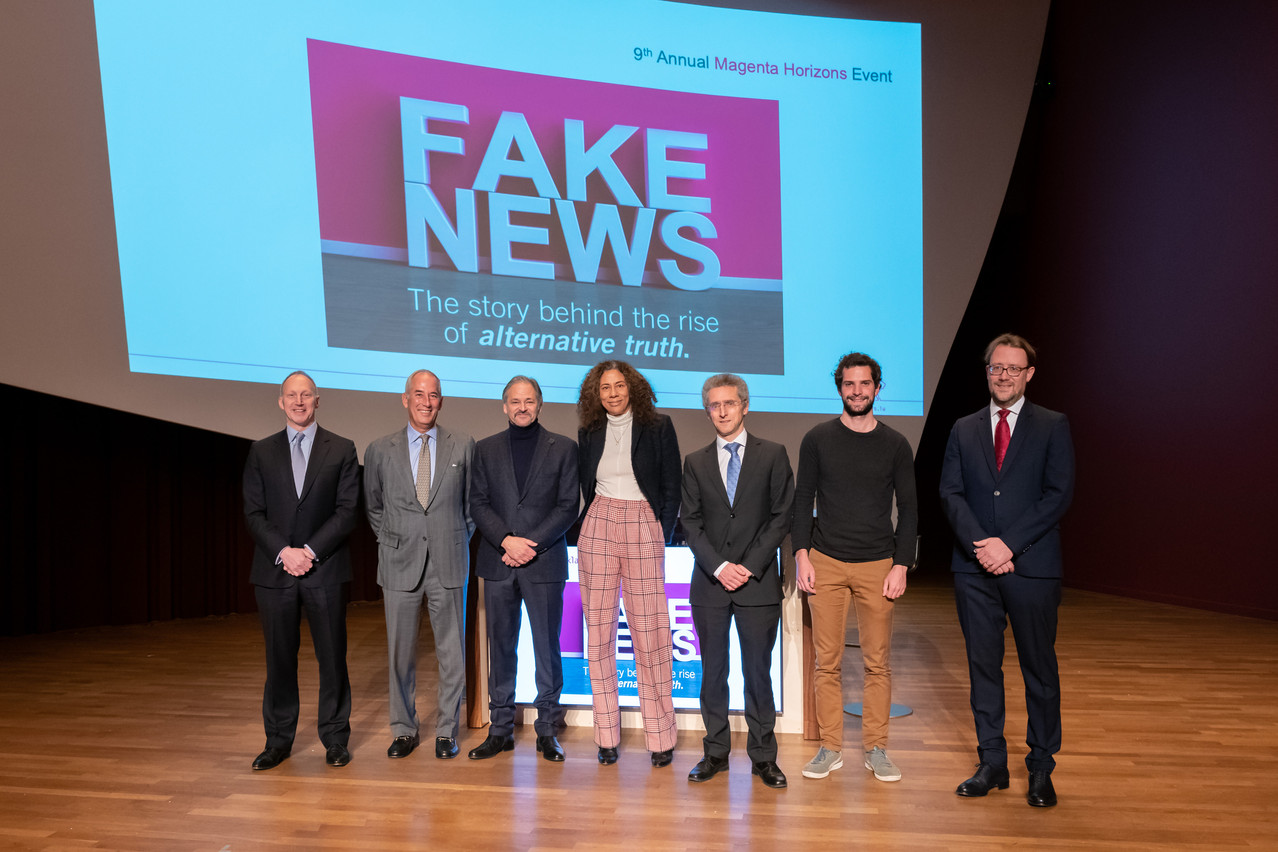The Brexit aftermath and Donald Trump’s victory securing the 45th US presidency both occurred in an era which has been called “post-truth politics”: one based on emotional appeal, not just hard facts.
Fake news and the rise of alternative truth was the focus of the 9thannual Magenta Horizons event hosted by Linklaters on 15 January at the Philharmonie. The event presented the challenges, opportunities and various perspectives on fake news, plus crisis management strategies, and a case study by investigative journalist Aliaume Leroy.
The human factor
David Schrieberg, CEO and co-founder of Vital Briefing, is a Pulitzer prize-winning journalist. He shared his experience as a former foreign correspondent, when he frequently had months at a time to research a story, admitting that those times have changed. This is in part due to the financial pressures faced by the media.
Technology has also significantly changed the landscape. Nowadays, anyone “can create a newspaper from scratch,” said Thomas Glocer, founder and managing partner, Angelic Ventures, and former CEO of Thomson Reuters Corp.
He added: “Technology has made it so easy what in the past took such a large investment.” For Schrieberg, technology also pushes people to believe those in their concentric circles, which makes it easy to “live within your own echo chamber”.
Both Schrieberg and Glocer expressed concerns over the future role of fake news, particularly with video meeting Artificial Intelligence. As Glocer said, it will take a “combination of machines and humans” to help counter this.
Glocer referenced the example of NewsGuard, which aims to combat false news by giving websites a red or green signal as a rating on whether the site is trustworthy. (Even NewsGuard has been met with a dose of scepticism, however, mainly from the Russian press and Wikileaks.)
But it’s the human component that may prove to be most mercurial. “People love a good story,” said Schreiberg, “and if the story is compelling, sometimes that’s all it takes” for a story to spread.
Have a critical eye
Aliaume Leroy, an open source investigator for Bellingcat and BBC Africa Eye, was a key member of the team investigating footage of a horrific killing which circulated on social media.
He and the team only had a video to go by, and a statement by Issa Tchiroma Bakary, Cameroon Minister of Communication claiming that the video was “nothing but an unfortunate attempt to distort actual facts and intoxicate the public.”
The team eventually managed, through video stills and readily available technology (Google maps, etc.), to identify mountain ridges, trees--even angles of the sun--to determine where the killings took place, when and by whom (see video).
Through his experience on the team making this breaking news, Leroy reminded audience members to “keep a critical eye to debunk” when necessary, even when it isn’t so obvious.
